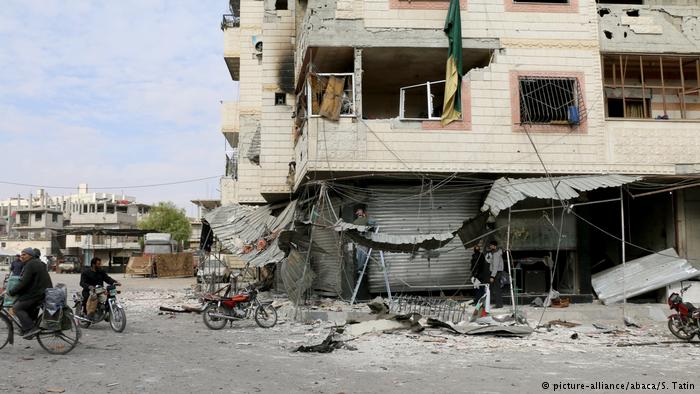
Military forces loyal to President Bashar al-Assad were reported to have launched scores of rockets, as well as a series of airstrikes, on the outskirts of Damascus overnight into Saturday morning.
At least 21 were reported dead in the overnight attacks, as the United Nations Security Council delayed a vote proposing a 30-day ceasefire until later on Saturday.
— According to the British-based Syrian Observatory for Human Rights, the latest deaths bring the number of people killed to 474 since bombing of the besieged area escalated on February 18. Among those reported casualties are 114 child fatalities.
— The Syrian state news agency SANA says rebels have been firing back into the capital, Damascus, hitting a hospital.
Russia demands ‘undertakings’
— The resolution that was drafted by Kuwait and Sweden proposed a 30-day ceasefire across Syria to allow humanitarian aid to be delivered and critically ill and injured people to be evacuated.
— Russia has demanded that the text should not apply to the “Islamic State” group or al-Qaeda, as well as “individuals, groups, undertakings and entities” associated with them. It also insists that rebel groups comply fully with the truce for it to work.
— The vote was delayed twice on Friday, and the Security Council eventually scheduled a vote for Saturday at 1700 UTC.
German Chancellor Angela Merkel and French President Emmanuel Macron wrote to Russian president Vladimir Putin to urge him to support the ceasefire, according to German government sources.
Russian Foreign Minister Sergey Lavrov said Damascus needed guarantees that residential areas of Damascus would not continue to be attacked by rebel fighters. “For the resolution to be effective, and we are ready to negotiate such a text, we put forward a principle that will enable the ceasefire to become real and based on guarantees of all those inside Eastern Ghouta and beyond Eastern Ghouta,” Lavrov said.
US Ambassador Nikki Haley, who did not participate in the negotiations, tweeted her dismay, asking how many more casualties there would be before an agreement was reached.
Russia has vetoed 11 draft Security Council resolutions to scupper action against the Damascus government, of which it is a key ally. In November, Russia used its veto to bring to an end a UN-led investigation of chemical weapons attacks in Syria.




